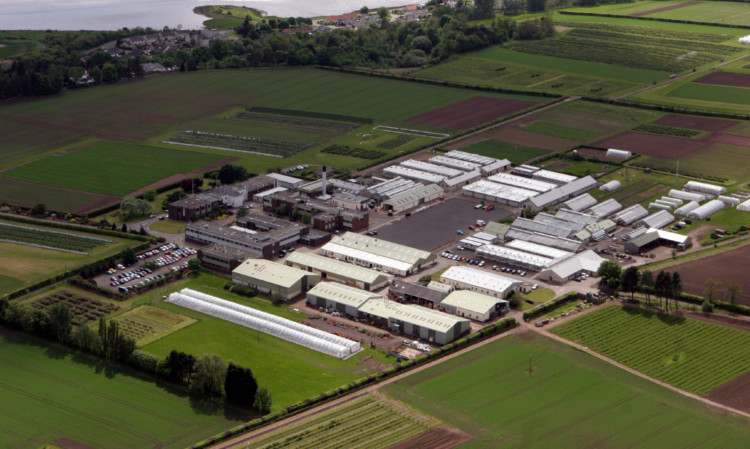A total of 70 administrative and scientific staff at the James Hutton Institute (JHI) are to lose their jobs.
A JHI spokeswoman was unable to say whether they would be able to reach the total through voluntary redundancy. The JHI has lost £2.5 million of government funding over the last three years.
JHI chief executive, Professor Iain Gordon, has set an ambitious target of 15% growth in commercial research contracts, but even then the institute faces a £1.8m deficit in the current year.
At the same time the Mylnefield complex, with its 40 buildings at Invergowrie, has been flagged up as being in urgent need of investment.
Professor Gordon has frequently emphasised the need for outside funding for science and has said he “would cast the net very wide” in search of it.
It is understood that lead scientists have been charged with raising £180,000 each, annually, from outside contracts.
Paradoxically, there is still recruitment being undertaken for new research work identified in a strategy paper as “key areas of strength, potential growth and sustainable income to ensure the long term future”.
It is understood these new posts are short-term and on more flexible contract terms than those applying to existing staff.
No-one from the Prospect union was available to comment.
The JHI spokeswoman added: “The Institute is realigning its activities in key areas, which will mean a reduction in activity and staffing levels in some other areas. This concentration of effort will free up resources and capital to invest and grow to fulfil our ambition to be the world’s leading agricultural and environmental research institute.”
Professor Gordon said: “Like all organisations that are supported, in large part, by the public sector, we face an ever-changing funding environment and we must adapt to meet these challenges. Staffing reductions in some areas will enable us to focus our activities on key strengths and areas for growth.
“This is just one element of the changes we are undertaking to make the institute the world leader in research to support the sustainable use of land and natural resources.”
When the JHI was formed it was an outward looking scientific institute able to operate on a global scale, but the loss of more than 10% of its staff will come as a blow to these ambitions.
Scientific input at Mylnefield has played a major part in international work to unravel the genomes of the potato and barley plants, and there has been a heavy involvement in plant breeding.
GM technology is used in laboratory work, but not in field trialling. It is not clear how severely the work programme will be curtailed.
